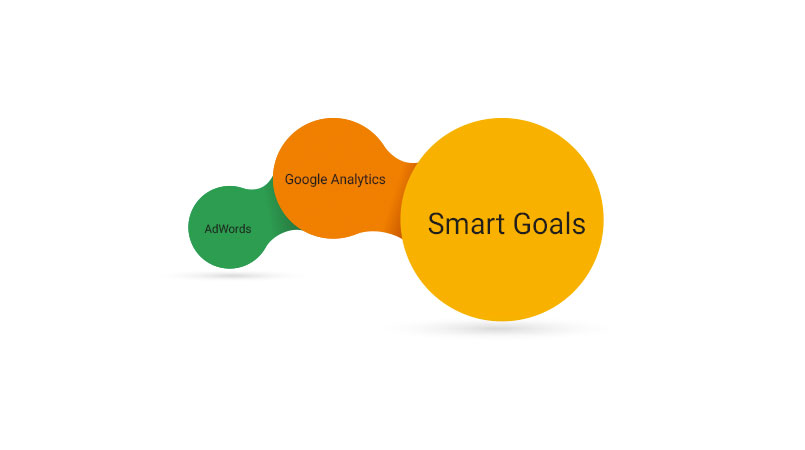Recent posts

Money Talks
The Intricacies of Trading Crypto vs. Forex
03 April 2024

Industry Experts
5 Effective Ways to Drive Traffic to Your Website
19 March 2024

Fur, Fins & Feathers
How To Maintain Your Dog’s Oral Hygiene At Home
14 March 2024

nichemarket Advice
Demystifying TikTok Metrics for Brands (Especially Small Businesses)
13 March 2024
Popular posts
Extravaganza
Trending Music Hashtags To Get Your Posts Noticed
24 August 2018
Geek Chic
How To Fix iPhone/iPad Only Charging In Certain Positions
05 July 2020
Extravaganza
Trending Wedding Hashtags To Get Your Posts Noticed
18 September 2018
Money Talks
How To Find Coupons & Vouchers Online In South Africa
28 March 2019
How To Use Google Analytics Smart Goals
25 July 2017 | 0 comments | Posted by Che Kohler in nichemarket Advice
Let's face it for some it's a scary digital world out there, with so many technical aspects to consider it can quickly become overwhelming or downright do your head in. As a small to medium size businesses, you can't always afford the marketing expertise to scale quickly and a lot falls into hands of those not fully skilled in marketing channels, which makes optimisation of channel performance a real problem.
Optimisation of channels is important but no more so than with paid search. Many businesses turn to it because of its low barrier to entry and instant results. However, competition can quickly heat up in your sector. So how do small businesses stay competitive? with continuous optimisation, but how do you achieve this without being an expert with on hand experience? Make use of a few machine learning capabilities within the Adwords platform, namely, Smart goals.
What are Smart Goals?
Smart goals allow you to optimise your AdWords performance using your best website sessions as a conversion metric. Which is perfect for those who either do not know how to set up goals in Google analytics or simply want a broader selection of signals to call upon when optimising for conversion.
For more on how to optimise Adwords using GA goals check out our article Improve Your Adwords Performance With GA Goals
Measuring explicit conversions, using either AdWords Conversion Tracking or imported Analytics E-commerce transactions, is the best way to optimise your bids, your ads, and your website. However, if you aren't yet measuring conversions, Smart Goals is an easy way to use your best sessions as conversions. You can then use Smart Goals to optimise your AdWords performance.
So How Do Smart Goals work?
Smart Goals are configured at the view level. Smart Goals use machine learning to examine dozens of signals about your website sessions to determine which of those are most likely to result in conversions. Each session is assigned a score, with the "best" sessions being translated into Smart Goals.
Some examples of the signals included in the Smart Goals model are Session duration, Pages per session, Location, Device and Browser. (Remarketing Smart Lists use a similar machine learning model to identify your best users.) To determine the best sessions, Smart Goals establishes a threshold by selecting approximately the top 5% of the traffic to your site coming from AdWords.
Once that threshold is set, Smart Goals applies it to all your website sessions, including traffic from channels other than AdWords. After enabling Smart Goals in Analytics, they can be imported into AdWords.
Prerequisites for using Smart Goals
To use Smart Goals, you'll need to meet certain perform the following tasks as well as meet the certain requirements. To take advantage of Smart goals you will have to:
Step 1:
- Link your Analytics and AdWords account(s)
- The linked AdWords account must have sent at least 500 clicks to the selected Analytics view over the past 30 days before you can set up Smart Goals.
Note: If the linked account falls below 250 clicks over the past 30 days for the selected view, Smart Goals will be deactivated until the clicks rise again to 500 or more.
Step 2:
The reporting view must not receive more than 10 million sessions in 30 days. The Data Sharing setting Google products and services must be turned on for your Analytics account. See the instructions below: Learn how to enable Data Sharing
Step 1: How to Enable Smart Goals
If your view is eligible, you can enable Smart Goals by selecting the Smart Goal goal type when following the regular goal setup flow:
- Sign in to Google Analytics.
- Click Admin, and navigate to the desired view.
- In the VIEW column, click Goals.
- Click + NEW GOAL.
- Select Smart Goal (if available).
- Give your Smart Goal a name and click Save.
No additional configuration or customization is required. (That's part of the reason why we call them "Smart Goals.")
Step 2: Instructions for setting up Smart Goals
To use Smart Goals to optimise your AdWords performance, you must first import them into AdWords. Here are the basic steps to do this:
- After you've activated Smart Goals in Analytics, sign in to your AdWords account, click the Tools tab, and select Conversions.
- Click Analytics in the left-hand menu.
- Check the boxes next to the goals or transactions you want to import. Click Continue.
- On the next page, you'll see settings that will apply to all of the goals or transactions you selected. Make your choices, then click Import goals.
- Click Close, or to import more goals, click Import more.
- AdWords will begin importing the data from your Analytics account. Historical data from before the import won't be included.
Step 3: Optimize AdWords performance using Smart Goals
To optimise your AdWords performance using Smart Goals, we recommend you use Target CPA bidding, a flexible automated bid strategy. You can also use manual CPC bidding if you would like to manage bids yourself. After importing Smart Goals into AdWords, let Smart Goals run for a few weeks to accumulate sufficient data. Then, to start using Smart Goals to optimise AdWords performance, divide the cost of your ads by the number of completed Smart Goals. This is your cost per acquisition (CPA). You can set your target CPA in Adwords accordingly.
Example:
You spent $2,000 in Adwords over the past two weeks and have 80 Smart Goals conversions. Therefore, the average CPA for a Smart Goals session during that time period is $25 ($2,000 / 80 = $25). This is the average cost for you to acquire a session with a high likelihood to convert, based on the Smart Goals model. In this example, you should set your target CPA in Adwords to $25.
The Smart Goals report
To help you see how Smart Goals perform, use the Conversions > Goals > Smart Goals report. This report shows you how your Smart Goals traffic differs from other traffic. You can also include the Smart Goals Completed dimension in custom reports.
Limitations of Smart Goals
Before you run off and set up Smart goals remember that there are no quick fixes to success in digital marketing and Smart Goals is no exception to this rule so we thought we'd advise you on the limitations of the tool.
- Smart Goals are not configurable or customizable. You can have one Smart Goal per view.
- Smart Goals will take up 1 of the 20 available goal slots (like any other goal).
- Smart Goals are currently only available for website views. Smart Goals cannot be used for mobile app views.
- Smart Goals are not available for views that receive more than 1 million hits per day.
- Smart Goals do not support View-Through Conversions (VTCs) or cross-device conversions in AdWords
Be smart
Smart goals is a great way to get started with AdWords and exploring its relationship with your site and Google analytics. If you can familiarise yourself with these tools, your traffic performance is sure to improve over time. So do you think machine learning in marketing is the way to go? Or just a nice to have to hold you over until you can get a real expert to look at your account? Let us know in the comments section below
Contact us
If you want to know more about Google Analytics with your site don’t be shy we’re happy to assist. Simply contact us here
You might also like
5 Effective Ways to Drive Traffic to Your Website
19 March 2024
Posted by Brigitte Evans in Industry Experts
An introduction to sourcing high quality traffic for your niche and why you should focus on channels that can give you the best chance of reaching id...
Read moreThe Intricacies of Trading Crypto vs. Forex
03 April 2024
Posted by Josh Welman in Money Talks
A deep dive into the differences between the forex and cryptocurrency markets, along with the nuances you have to consider if you trade these two ass...
Read more{{comment.sUserName}}
{{comment.iDayLastEdit}} day ago
{{comment.iDayLastEdit}} days ago
 {{blogcategory.sCategoryName}}
{{blogcategory.sCategoryName}}
